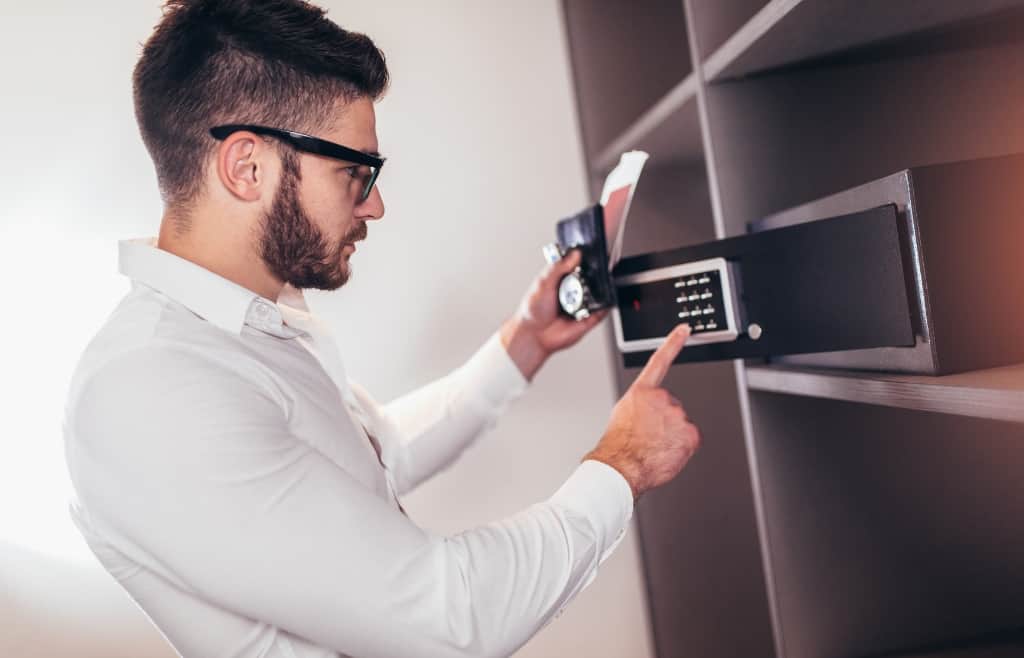A Last Will and Testament is the foundational document for many estate plans. It is extremely important, and where to keep your will is equally important. After all, when your family needs it, you won’t be able to tell them how to find it.
A will, legally referred to as a Last Will and Testament, is a written document that allows property and assets to pass to the people and institutions you want to provide for after your passing. A will fulfills many vital roles, including:
- Distributing assets to people, charities, organizations, etc., detailing who gets what and how much.
- Transferring property.
- Naming a personal representative to help ensure the estate’s assets go to the designated places.
- Appointing a successor guardian to care for minor children.
When someone dies without a will, they are said to have died intestate. When this occurs, their assets enter a lengthy and frequently costly process known as intestate succession, where the state decides who receives assets that are not co-owned or have no named beneficiaries. (To learn more about intestate succession and the inheritance hierarchy, please read our article on “What is a Will?”)
When a family cannot find someone’s will, they are in the same situation as if the will was not created. The courts will declare that the deceased died intestate, and the assets must pass through intestate succession. This means the deceased person’s assets may not go to the people who should have and deserve them.
Who should keep the original will?
While a lawyer may keep a copy of a paper will, the original version goes home with the person who created it. Having the original makes the question of where to keep a will extremely important. So, before we answer it, let’s first address…
Where you should NOT keep a will
After someone passes away, the personal representative named in the will must submit the document to the superior court (probate court) within 40 days of the decedent’s death. The court prefers the original version of the will. It will accept a copy of the will, but that can be a lengthy process. Having an original copy of the will makes everything much easier, which is why it needs to be easily accessible to your family when they need it. With that in mind, here are a few places you should not keep your will.
A hiding place. Yes, a will is an important document, and you don’t want to leave it sitting on a kitchen counter. However, you don’t want your safe storage space to be so good that no one can find your will when needed. A will is not an Easter egg. Trust us; your family will not enjoy having to hunt for your will. Store it, don’t hide it.
A filing cabinet or a drawer. Granted, those places are designed to store things like papers, often important papers. However, they are also where things like papers, often important papers, disappear. There’s a very good chance that your will is found long after it is needed if you keep it in a filing cabinet or drawer.
A safe deposit box (with one exception). A safe deposit box (or safety deposit box) is a secure metal container that stores valuables at a bank or credit union. It’s a great place to keep a valuable coin collection or jewelry. However, only people listed on the safe deposit box lease can access the contents. So, if you are the only person on the lease, and your will is in the safe deposit box, your family will need to go through significant legal wrangling to access the box—and that may not happen. If you keep a will (or anything of value), you need someone you trust on the lease with authority to access the box.
Where should you keep your will?
So, now that we know where not to store a will, let’s review some of the better locations where to keep a will.
A fireproof and waterproof lockbox. While chucking your will in a drawer is not a great idea, your home is still an ideal place to keep the original copy of your will—as long as it is safe. You can buy fireproof and waterproof lockboxes at most big box retailers or online. They are an affordable and convenient way to store important papers and items. They may not be the best place to keep jewelry and other valuable items (these boxes are hardly theft-proof), but when you need an answer to “Where should I store my will?” they are an ideal solution. Be sure to either give a copy of the lockbox’s key to someone you trust or leave instructions on where to find it.
Superior court clerk’s office. Here’s an effective solution to where to store your will. In Washington state, it is possible to keep the original copy of your will with the superior court clerk’s office. For $20 and a completed “will repository cover sheet,” the superior court clerk will seal and securely store the document. No one can see or remove your will unless that person has a legally valid reason and obtains a court order. However, once you pass away, someone just needs a certified copy of your death certificate, and the court will unseal your will.
Who should have a copy of my will?
While you are alive, the answer to “Who should have a copy of my will?” is “whomever you wish.” As long as the original copy of your will is easily accessible after you pass away, you are under no legal obligation to show your Last Will and Testament to anyone.
However, we generally advise our clients to share a copy of their will with their personal representative or successor trustee. That way, should something unfortunate occur to the original version, they know someone trustworthy has a copy. In addition, Harbor Law Firm always offers to store a scanned copy of our client’s wills in our secure servers.
Depending on your family situation, it may be prudent to have a discussion with your beneficiaries about the decisions you made in your will and other estate planning documents. Sometimes this conversation is difficult, but it is preferable to your loved ones having unanswered questions (and possibly feeling hurt or bitter toward you) after you die.
Should you keep old wills?
Absolutely not!
There are many reasons to update a will: marriage, a new child, divorce, a falling out with a beneficiary, etc. Anytime you update, revise, or create an entirely new will, you should destroy all copies of the old will—especially the original.
Anytime there is an old copy of a will floating around, there is always the potential for someone to try to validate the older version and challenge the newer one in court. The court will likely accept the latest version, but it is always preferable to avoid legal challenges. Always destroy old wills. In Washington state, a “burnt, torn, canceled, obliterated, or destroyed” will is no longer considered valid (excluding accidental damage).
If you have more questions regarding where to store a will or want to start an estate plan, please reach out to Harbor Law Firm.
We make the estate planning process as simple and stress-free as possible. Along the way, we’ll answer any questions you may have, such as “What is the difference between a living trust vs will?” and “Where should I keep my will?”
Our services include the following:
- Knowledgeable guidance customized to your specific circumstances and goals.
- A fully remote process that never requires you to leave home.
- Hours to fit your schedule.
- An adaptable process for exchanging documents and collaborating.
- Flat-rate pricing, so you’ll never be surprised by a legal bill.
We also offer a free consultation and can speak with you outside regular business hours. For more on our remote estate planning process, visit this page.
Our proven process defines precisely what you can expect, and our focus is always on your goals. Please fill out this form to schedule your free consultation.

